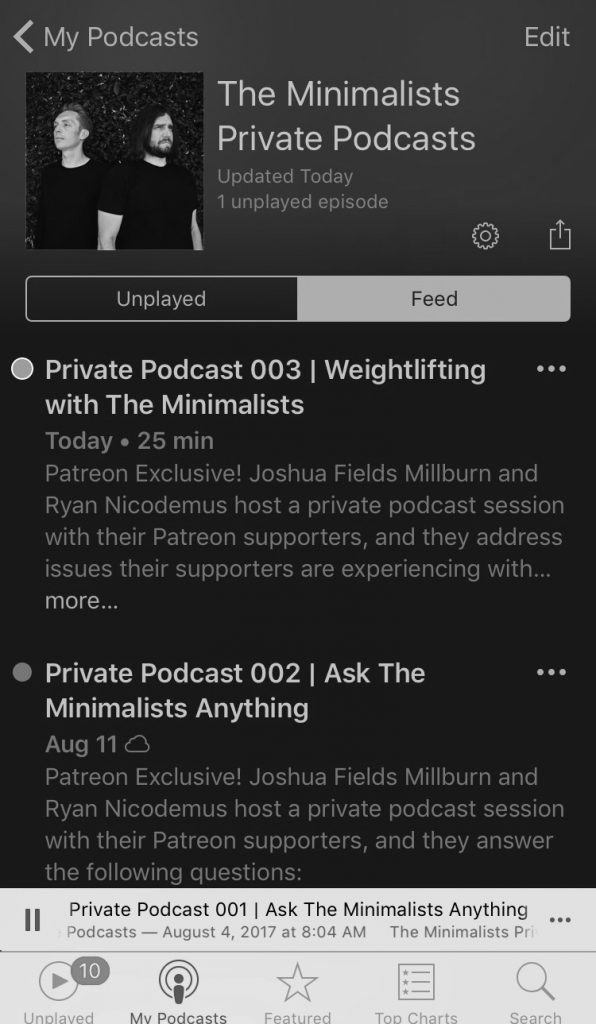
On Facebook I quietly unsubscribe from friends who regularly make angry issue-related posts, even if they’re right. I don’t want to be pummeled by “truth,” no matter how true it is.
I understand why they do it. I’ve done it. Ignorance — of overfishing, of puppy mills, of normalized sexism, of what vaccines can and can’t do — can be genuinely dangerous, and wanting to reduce this ignorance is understandable.
Some are able to do it carefully and diplomatically, and I have learned a lot from these people.
But most internet activists let contempt seep into the message. It becomes about making others wrong instead of trying to help them be right. Just visit virtually any issue-related message board. It’s adversarial. It’s normal to blame people for their ignorance.
Ignorance, if that’s what it really is, isn’t something people can fairly be blamed for. We don’t choose what not to grasp, what not to have been taught, what not to have understood the significance of.
Ignorance is blind to itself. When you’re trying to rectify ignorance in someone else, it’s easy to forget that you’re ignorant too, in ways you can’t know.
Whoever you are, you have to admit there’s a hell of a lot you don’t know, and you don’t know that you don’t know it. None of us are free of ignorance. So in our attempts to reduce ignorance we ought to approach others as fellow learners, rather than people worthy of blame.
The worst thing a person can do for their stance is to deliver it packaged with a moral judgment. This effectively eliminates the other person’s freedom to agree, and may even create a committed opponent to their cause. Doing this to a lot of people reduces the public’s receptivity to the cause altogether. Even if it is the truth, when you hurl it at someone it will bounce rather than stick.
Learning means letting go of a current belief, and a person needs to be in a particularly receptive state in order to do that. Yet, most attempts at internet activism are openly derisive of the people they (ostensibly) want to educate.
Changing minds is very delicate work. Great care must be taken not to express contempt for people who don’t (yet) see it your way. Put people on the defensive, and their minds are closed until they feel safe again. The moment a discussion triggers a defensive reaction, the possibility of learning anything is gone for that person — even though this conflict point is where most online “activism” begins.
This crucial delicateness is threatened by our frustration with beliefs we see as ignorant. It’s hard not to be angry at the ill-informed anti-vaccine movement, now that we’re seeing domestic outbreaks of measles and whooping cough.
Anger is the easiest response, and also the most destructive. What do you think started the anti-vaccine movement? Probably the same kind of anger: “What we’ve been told is wrong and it’s putting our children at risk. People need to smarten up!”
Even if one side is factually correct — and this isn’t always the case — the more anger that’s directed at the other side, the fewer of those people will feel safe to change their minds. Cornering people and making them wrong only encourages heel-digging and rationalizing and the touting of bad science, because at that point it’s just an exchange of emotional noise.
This kind of arguing is an almost perfectly useless approach to reducing ignorance. Helping people to understand something (if that is indeed what the arguers want) is the opposite of fighting.
The feeling of being right is an extremely attractive high to us. It feels as good to be right as it feels awful to be wrong. But whether we have that feeling or not has little to do with whether the facts indeed back us up, and that’s why it’s such a dangerous drug to get used to.
Once you get attached to the feeling of being right, it becomes more important than actually being right. We’ve all found ourselves in pointless debates with friends: Was Crash a good movie? Is Bono actually helping anyone? You may have noticed that in these debates, we don’t want the other person to make a good point, even if conceding it could leave us with a more intelligent stance than we had before. Instead we want them to make dumb points that make ours sound good. We want them to be wrong more than we want to learn anything.
If you were wrong, would you want someone to tell you? Maybe, if it were done privately and sympathetically. Doing that isn’t a common skill. If you want to learn how to talk to people about anything without putting them on the defensive, Marshall Rosenberg’s brilliant book Nonviolent Communication is your Bible. (In my humble opinion.)
It is hard to pass up the temptation to make people wrong. I’m not very good at it. In the process of writing this article I’ve noticed anger emerging again and again in my words, and I’ve done my best to keep it out of this piece. After all, my goal here was to “cure” a particular kind of ignorance.
That’s always shaky ground though, because you have to begin with a rather self-important belief: “I have a truth you don’t have, and I’m going to give it to you.” I’ve tried to keep my aims pragmatic here and not succumb to the impulse to attack and tell-off. But I’m sure it still shows where I am blind to it.
I do think I’m right, but it’s possible I’m being ignorant in a way I don’t understand. And some people may say so in the comment section, and again I’ll have to monitor my temptation to bully off their opposing views with rhetoric. If I’m skillful enough, I might be able to genuinely consider agreeing with them.
Even now I’m afraid I won’t be able to do that when I have the chance. I’m pretty good at rhetorical swashbuckling, or at least good enough to satisfy myself when I try. This blog’s comment history is strewn with verbal throttlings I’ve given to people, mostly just for the way in which they disagreed with me. I hope this time my detractors are gentle and diplomatic, because that rare form of generosity will give me the best possible chance of learning something.
***
***






